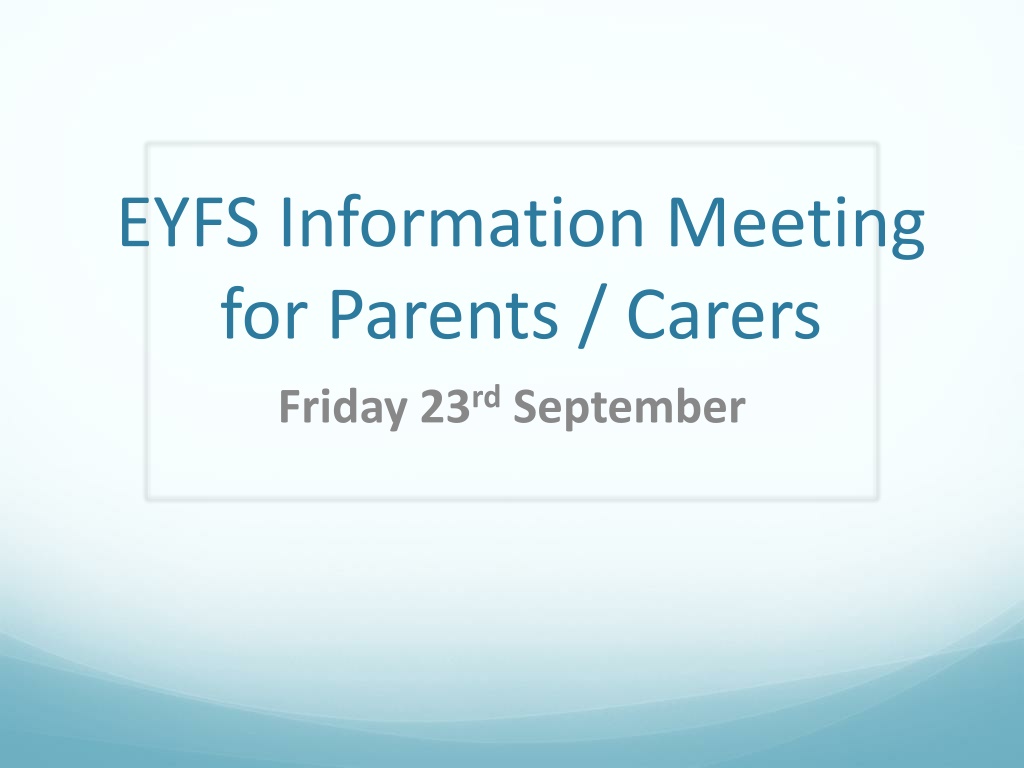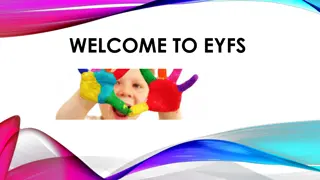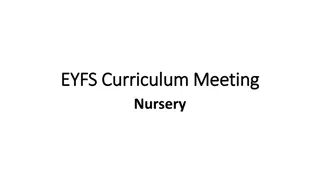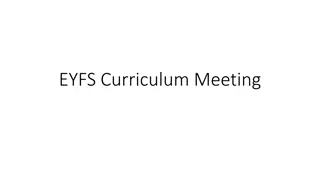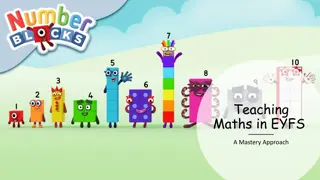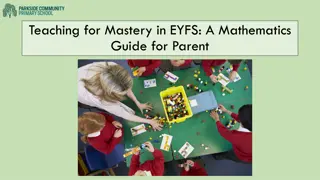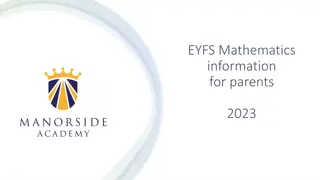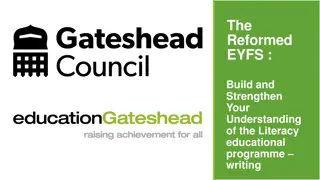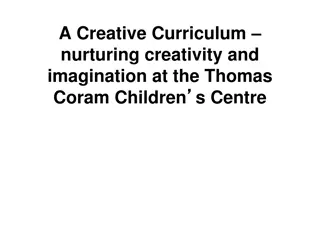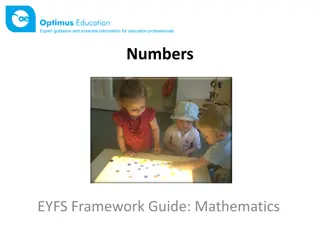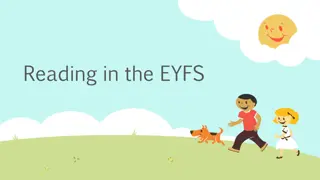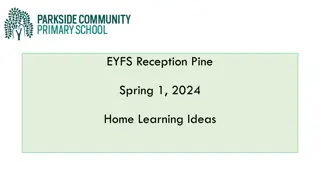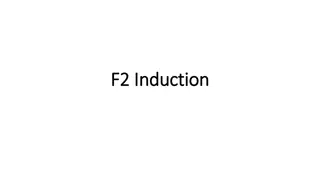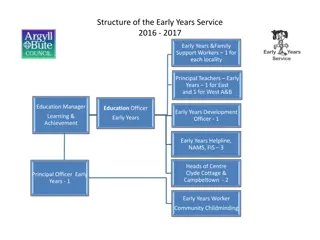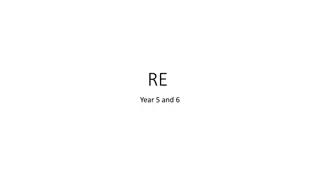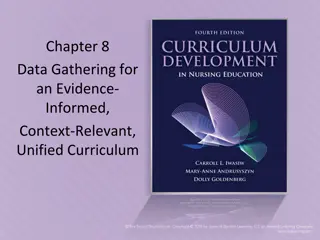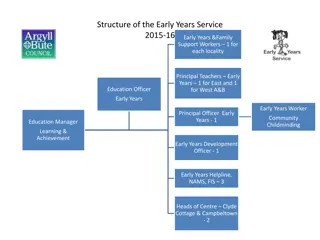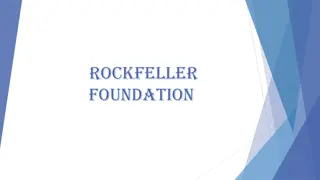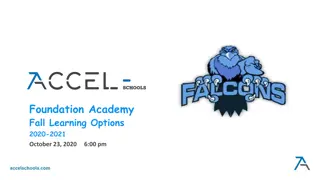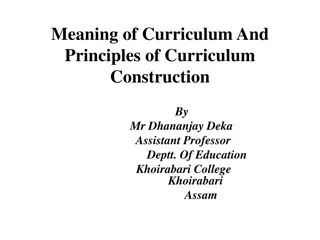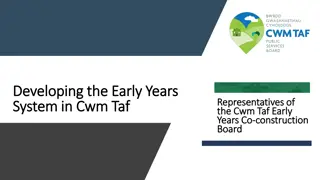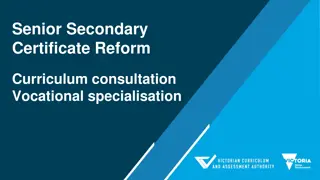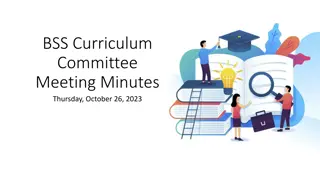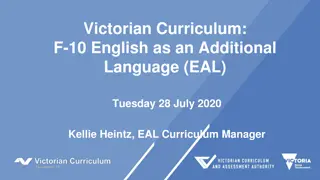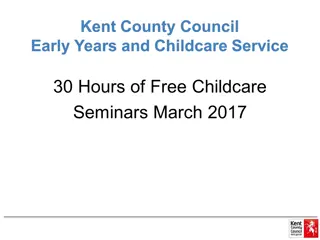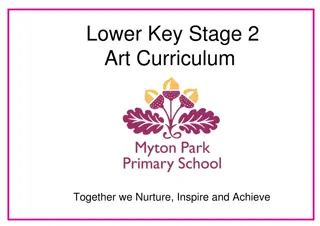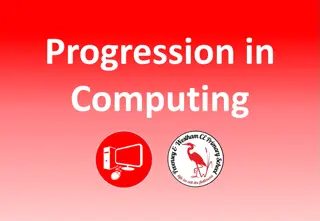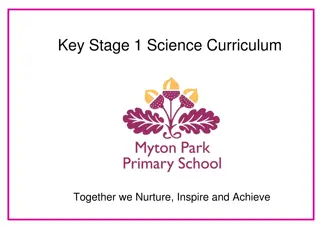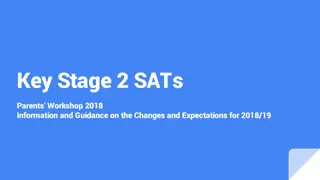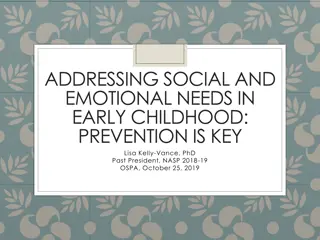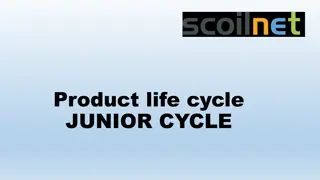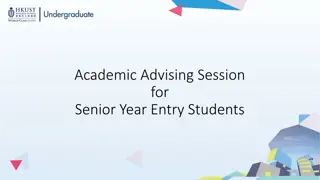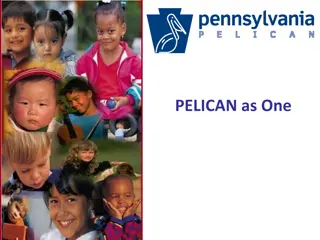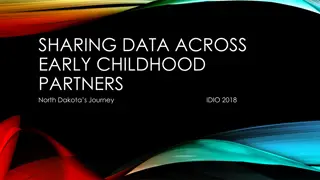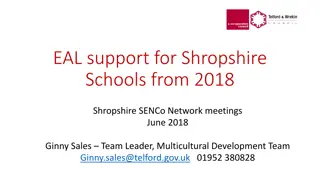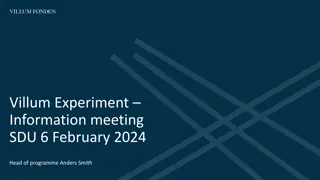Understanding Early Years Foundation Stage (EYFS) Curriculum at Ashmead
Discover the key aspects of the Early Years Foundation Stage (EYFS) curriculum at Ashmead through child-led learning, independence development, and a focus on both prime and specific areas of learning. Meet the dedicated EYFS team and learn how child-initiated and adult-supported activities create a nurturing environment for children to explore, learn, and grow independently.
- EYFS curriculum
- Child-led learning
- Early childhood education
- Independence development
- Child-initiated activities
Download Presentation

Please find below an Image/Link to download the presentation.
The content on the website is provided AS IS for your information and personal use only. It may not be sold, licensed, or shared on other websites without obtaining consent from the author. Download presentation by click this link. If you encounter any issues during the download, it is possible that the publisher has removed the file from their server.
E N D
Presentation Transcript
EYFS Information Meeting for Parents / Carers Friday 23rdSeptember
Whos who! Ashleigh EYFS Phase Leader and Nursery Teacher Josie Reception Teacher Sophia Nursery Nurse Sophie Teaching Assistant
EYFS Curriculum Early Years Foundation Stage = EYFS 7 areas of learning in EYFS Framework PRIME - Communication and language; Physical development; and Personal, social and emotional development. These prime areas are those most essential for your child s healthy development and future learning.
EYFS Curriculum As children grow, the prime areas will help them to develop skills in 4 specific areas. These are: Literacy; Mathematics; Understanding the world; Expressive arts and design.
Child Led Learning at Ashmead EYFS follows a child led curriculum not based on topics Designed to have the flexibility to follow the children s specific interests and/or needs Child is in the driving seat Adults respond to what the child finds interesting or needs further support in and develops the environment and activities around these things
How we learn Opportunities for child initiated learning in all areas of learning both inside and outside Adult supported activities adults will play or work alongside children in their play to support them to develop (e.g. developing language when talking to friends, sharing resources, cutting) Adult led activities differentiated to support and challenge individual needs Trips and visitors TBC
Independence in the EYFS Important your child learns how to do things for themselves supports confidence and physical development Throughout the Early Years adults teach, model and provide a range of opportunities to develop children's independence: Encouraging children to tidy up resources, put own coats on and get dressed for Forest School, use the toilet/wash hands, serve own milk/water (breakfast in Nursery), select own resources to further their learning
Parents as Partners Tapestry Adults observe children s exploration and learning Record these observations using Ipod devices via an online learning journey system called Tapestry. Complete permission form ADD EMAIL Use password to log on and view photos, videos and comments of your child s learning at school
Parents as Partners Learning Journey s these are books that the children take ownership of, choose work to go in often art and writing is kept here. LJ s go home every half term holiday parents can sign these out more regularly We share them with your child regularly they like to share with their friends Please feel free to add photos, tickets, work
Supporting your child at home Parent caf s = parent workshops Chance to meet other parents refreshments Take part in a group story and singing session Observe the adults work alongside your child Leaflets and information about how to support your child Dates TBC Oct Reading focus, Nov
AOB PPA Reception Tuesday pm covered by Ashleigh Try to keep drop off time prompt helps your child settle quicker/helps congestion by door in morning. In Reception you may want to start saying goodbye to your child at the gate. After school/session better for discussions adults on the gate are there for safety! Reception early morning routines support a settled start to the day children on carpet sharing books, will work up to whiteboard work. In Nursery and Reception we like to start off the week by sharing our news from the weekend. In Nursery this happens in small circle time groups. In Reception we ask parents to support their child to come into school with a
AOB Your child will get messy in EYFS please make sure they are dressed accordingly! Messy clothes are a sign of deep learning and involvement! Spare clothes available to change, appropriate clothes for weather. Please make sure children are in velcro shoes! Forest School bring in wellies (N Wednesday, R Friday half class each week)
